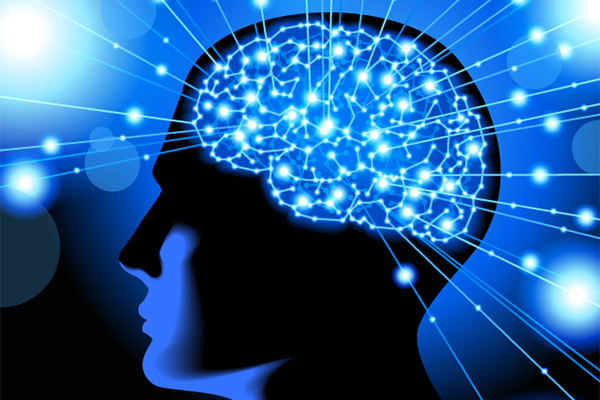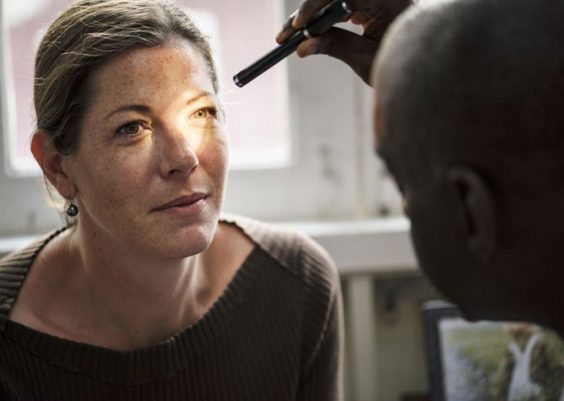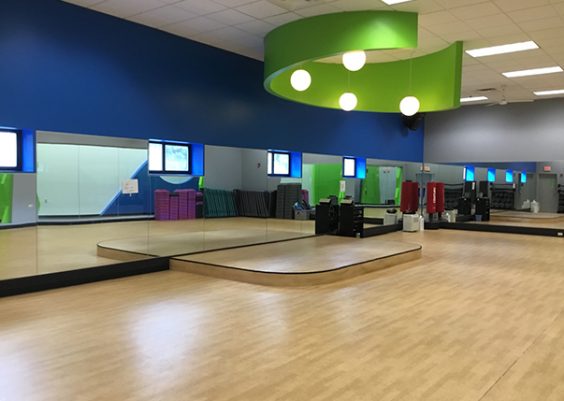Dec. 6, 2017 — How consistently you type on a keyboard and the way you use your smartphone may one day tell your doctor — or someone else, like your employer — if your brain is ailing.
‘
}
);
ss.positionArrowsIa(‘#dyn-ss-1’, 0, slideshow_length);
/* Attach event handlers */
$(‘#dyn-ss-1’).find(‘.controls.primary .prev’).on(‘click tap’, function(event) {
currSlide = slideshowInst.getCurrentSlide();
event.preventDefault();
if(currSlide !== 0){
slideshowInst.goToPrevSlide();
if( thisDevice === “mobile” ) {
webmd.metrics.dpv({
moduleName: ‘ia-ss-ctl_prev’,
pageName: window.s_pagename,
iCount: currSlide,
refresh: false
});
} else {
wmdPageLink(‘ia-ss-ctl_prev’);
}
}
});
$(‘#dyn-ss-1’).find(‘.controls.primary .next’).on(‘click tap’, function(event) {
event.preventDefault();
slideshowInst.goToNextSlide();
currSlide = slideshowInst.getCurrentSlide() + 1;
if( thisDevice === “mobile” ) {
webmd.metrics.dpv({
moduleName: ‘ia-ss-ctl_next’,
pageName: window.s_pagename,
iCount: currSlide,
refresh: false
});
} else {
wmdPageLink(‘ia-ss-ctl_next’);
}
});
/* Reposition arrows when browser is resized */
$(window).on(‘resize’, function() {
var currentSlide = slideshowInst.getCurrentSlide();
// only run if width changed to prevent it triggering on iPhone scroll
if (currentWidth !== $(window).width()) {
currentWidth = $(window).width();
ss.positionArrowsIa(‘#dyn-ss-1’, currentSlide, slideshow_length);
}
});
},
onSlideAfter: function ($slideElement, oldIndex, newIndex) {
ss.positionArrowsIa(‘#dyn-ss-1’, newIndex, slideshow_length);
}
}
);
});
});
});
Right now, doctors generally rely on questionnaires about a person’s symptoms and written challenges like drawing a clock to begin to home in on brain diseases like depression and dementia. New technologies would replace these with passive monitoring of things like computer or smartphone use, or even changes to a person’s brain waves, to detect brain changes consistent with diseases like Alzheimer’s, Parkinson’s, PTSD, depression, and injuries like a concussion.
Several companies brought products that highlight these new approaches to the recent SharpBrains Virtual Summit. SharpBrains is an independent market research firm tracking products aimed at boosting brain health.
While the technologies discussed are still being studied, all the companies included say they plan to submit their products to the FDA for approval as medical devices. That process is different from the kind of rigorous testing the FDA requires of new drugs, however, and doesn’t guarantee that the products work as claimed.
Here are some of the new products in development.
Finding Brain Trouble Earlier
NeuraMetrix is new software that tracks the rhythm of a person’s typing as they work on a computer.
“It’s highly likely the most consistent thing that a human body ever does,” says Jan Samzelius, founder and CEO of NeuraMetrix Inc.
‘);
$(‘.ia-social-share-2’).socialshareplugin(
{
shareOrder: [‘facebook’,’twitter’,’pinterest’,’email’],
baseHtmlTmpl: ”,
shareTitle: videoTitle,
shareDesc: videoDescription,
shareImg: ‘https://img.webmd.com/dtmcms/live/webmd/consumer_assets/site_images/article_thumbnails/video/improve_your_brain_video/128x73_improve_your_brain_video.jpg’,
shareLink: shareLink
}
);
});
});
He says he worked in the world of data security before he changed to health. He was looking for digital fingerprints — or the ways that people interact with devices like computers and smartphones that might distinguish them from other users. “We were trying to rid the world of passwords,” he says, “because people don’t like them and they don’t work.”
While doing so, he says, he found a strong digital identifier: the way a person types at a keyboard.
Samzelius says he looked at one person and how many milliseconds — or thousandths of a second — that person would hold a particular key on a keyboard down while they were typing. Every time that person would strike that key, they held it the same length of time, within one one-hundredth of a second.
When typing rhythm becomes inconsistent, Samzelius says, it can show researchers something about the brain.
NeuraMetrix recently collaborated with the Michael J. Fox Foundation to monitor how 154 people typed for 90 days — 87 people with Parkinson’s and 67 healthy people. He says his technology was able to tell who was healthy and who had Parkinson’s. He also could identify patients whose disease was being well managed and those whose symptoms were poorly controlled. Samzelius says he can also tell when patients have changes to their medication and whether those changes are working. The company says it’s preparing its results for publication.
“The theory is that typing, which is likely our strongest habit, is hardwired into our brains. As the brain gets attacked by disease, the hardwiring will break, but it will break very slowly and in very small increments,” he says.
Samzelius says he’s hopeful that typing cadence may show the earliest signs that a brain is in trouble — years and perhaps decades before current tests can.
The test only measures typing cadence, he stresses. It doesn’t track the content of what what’s being typed. Keystrokes are erased before the results are recorded.
Drug companies are already adopting the technology, Samzelius says, to help them know when a drug isn’t working so they can cut their losses.
That impressed a panel of judges at the summit’s Brainnovations competition, which was billed as a kind of “Shark Tank” for new brain technologies.
“If we can identify signals of treatment response early, that would be huge,” said Adam Haim, MD, chief of the Small Business Innovation Research and Small Business Technology Transfer programs at the National Institute of Mental Health in Bethesda, MD.
Samzelius says he hopes to use the technology to help detect brain diseases in their earliest stages, when treatment may be most effective.
He says he’s looking to partner with researchers who are studying people who carry the APOE4 gene, which makes them more susceptible to Alzheimer’s disease, to test the technology for early Alzheimer’s detection.
He says monitoring and results will cost $30 per person per month.
Detecting Depression
Another company that’s banking its diagnostics on how we use electronic devices like smartphones is Mindstrong Health.
Tom Insel, MD, who is a former director of the National Institute of Mental Health, co-founded Mindstrong 6 months ago, along with partners from the data security and medical industries.
Similar to NeuraMetrix, Mindstrong is looking at 45 different keyboard and scroll patterns on a smartphone to find clues about a user’s mental health.
‘
}
);
ss.positionArrowsIa(‘#dyn-ss-4’, 0, slideshow_length);
/* Attach event handlers */
$(‘#dyn-ss-4’).find(‘.controls.primary .prev’).on(‘click tap’, function(event) {
currSlide = slideshowInst.getCurrentSlide();
event.preventDefault();
if(currSlide !== 0){
slideshowInst.goToPrevSlide();
if( thisDevice === “mobile” ) {
webmd.metrics.dpv({
moduleName: ‘ia-ss-ctl_prev’,
pageName: window.s_pagename,
iCount: currSlide,
refresh: false
});
} else {
wmdPageLink(‘ia-ss-ctl_prev’);
}
}
});
$(‘#dyn-ss-4’).find(‘.controls.primary .next’).on(‘click tap’, function(event) {
event.preventDefault();
slideshowInst.goToNextSlide();
currSlide = slideshowInst.getCurrentSlide() + 1;
if( thisDevice === “mobile” ) {
webmd.metrics.dpv({
moduleName: ‘ia-ss-ctl_next’,
pageName: window.s_pagename,
iCount: currSlide,
refresh: false
});
} else {
wmdPageLink(‘ia-ss-ctl_next’);
}
});
/* Reposition arrows when browser is resized */
$(window).on(‘resize’, function() {
var currentSlide = slideshowInst.getCurrentSlide();
// only run if width changed to prevent it triggering on iPhone scroll
if (currentWidth !== $(window).width()) {
currentWidth = $(window).width();
ss.positionArrowsIa(‘#dyn-ss-4’, currentSlide, slideshow_length);
}
});
},
onSlideAfter: function ($slideElement, oldIndex, newIndex) {
ss.positionArrowsIa(‘#dyn-ss-4’, newIndex, slideshow_length);
}
}
);
});
});
});
Mindstrong is currently watching how its technology works in the hands of people who are being treated with the drug ketamine for major depression. Ketamine is an interesting test case, because it gives strong and almost immediate relief of depressive symptoms, but it also wears off quickly, within a few days. Insel says the company is watching to see if its technology can detect both the relief of symptoms and their return as people use their smartphones.
Insel says he’s hopeful the technology can pick up symptoms before traditional kinds of tests for depression do.
Mindstrong is still doing research, but Insel says insurance companies are interested since software is a lot less expensive than doing neuroimaging or gene testing.
But he says there’s no evidence right now that his technology or any of the others in this space offer real-world benefits. Can they reduce hospitalizations, for example, or suicide attempts? No one has shown that yet.
Insel also realizes that the passive nature of the technology, which monitors you when you’re not thinking about it, can seem a little creepy. What’s to stop your employer, for example, from installing the software on your work phone and using the data it collects for its own ends?
He says along with the software, Mindstrong is working on a set of ethical guidelines for how this kind of data is collected and used.
He sees an urgent need for these safeguards across the industry.
“I don’t want there to be real violations of trust so people see this as a threat and not an opportunity,” Insel says.
Using Brain Waves to Spot Problems
A company called HealthTech Connex is using a different approach — it is measuring waves generated by the brain’s responses to sights and sounds to detect problems.
In one study, done along with the Mayo Clinic, hockey players donned a cap that looks a little like a bathing cap covered in electrodes. It recorded the brain’s activity before and after the players got knocked in the head.
‘
}
);
ss.positionArrowsIa(‘#dyn-ss-5’, 0, slideshow_length);
/* Attach event handlers */
$(‘#dyn-ss-5’).find(‘.controls.primary .prev’).on(‘click tap’, function(event) {
currSlide = slideshowInst.getCurrentSlide();
event.preventDefault();
if(currSlide !== 0){
slideshowInst.goToPrevSlide();
if( thisDevice === “mobile” ) {
webmd.metrics.dpv({
moduleName: ‘ia-ss-ctl_prev’,
pageName: window.s_pagename,
iCount: currSlide,
refresh: false
});
} else {
wmdPageLink(‘ia-ss-ctl_prev’);
}
}
});
$(‘#dyn-ss-5’).find(‘.controls.primary .next’).on(‘click tap’, function(event) {
event.preventDefault();
slideshowInst.goToNextSlide();
currSlide = slideshowInst.getCurrentSlide() + 1;
if( thisDevice === “mobile” ) {
webmd.metrics.dpv({
moduleName: ‘ia-ss-ctl_next’,
pageName: window.s_pagename,
iCount: currSlide,
refresh: false
});
} else {
wmdPageLink(‘ia-ss-ctl_next’);
}
});
/* Reposition arrows when browser is resized */
$(window).on(‘resize’, function() {
var currentSlide = slideshowInst.getCurrentSlide();
// only run if width changed to prevent it triggering on iPhone scroll
if (currentWidth !== $(window).width()) {
currentWidth = $(window).width();
ss.positionArrowsIa(‘#dyn-ss-5’, currentSlide, slideshow_length);
}
});
},
onSlideAfter: function ($slideElement, oldIndex, newIndex) {
ss.positionArrowsIa(‘#dyn-ss-5’, newIndex, slideshow_length);
}
}
);
});
});
});
It generates something its creator, Ryan D’Arcy, PhD, calls “brain vital signs.”
D’Arcy, a neuroscientist and professor at Simon Fraser University in Burnaby, British Columbia, came up with software that works with EEG machines to detect changes to how the brain responds to sights and sounds.
In an ongoing study, for example, the software was able to show when hockey players got concussions after a blow to the head. It also showed that when they returned to play, their brain waves still hadn’t quite returned to normal.
He says the company will continue to develop profiles of brain wave changes that reflect different disease states like depression and dementia.
D’Arcy says the company is applying for FDA medical device approval in 2018. In the beginning, it will be marketed to doctors.
“Just like blood pressure and heart rate have transformed cardiac care, we intend for this to disrupt and transform brain health,” he says.
Brain Disease Tests Go Digital
Another company, called Savonix, has taken those pen and paper tests that doctors give to patients in their offices and moved them onto smartphones and tablets. The task is harder than it sounds because of how the technology itself can influence the results.
“I use an iPhone, and you might use a Samsung. The latency, or the amount of time in milliseconds it takes between when I press a button and the time it takes for a response to be recorded, has to be assessed for every single device you use,” says Alden Gross, PhD, who has been following some of this technology.
Gross, a psychiatric epidemiologist at Johns Hopkins University in Baltimore, is not affiliated with Savonix.
The company says it has made those changes across platforms. They also make changes for things like touch screen effects. Savonix says it’s able to make these tests — which can take half a day in a specialist’s office — more widely available.
In a presentation at SharpBrains, Greg Wong, vice president of product management at Savonix, likened the tests and their interpretation as a “thermometer for the mind that’s easily acceptable.”
The tests will happen at doctors’ offices, each will cost $10 to $40, and Wong says they are covered by insurance.





